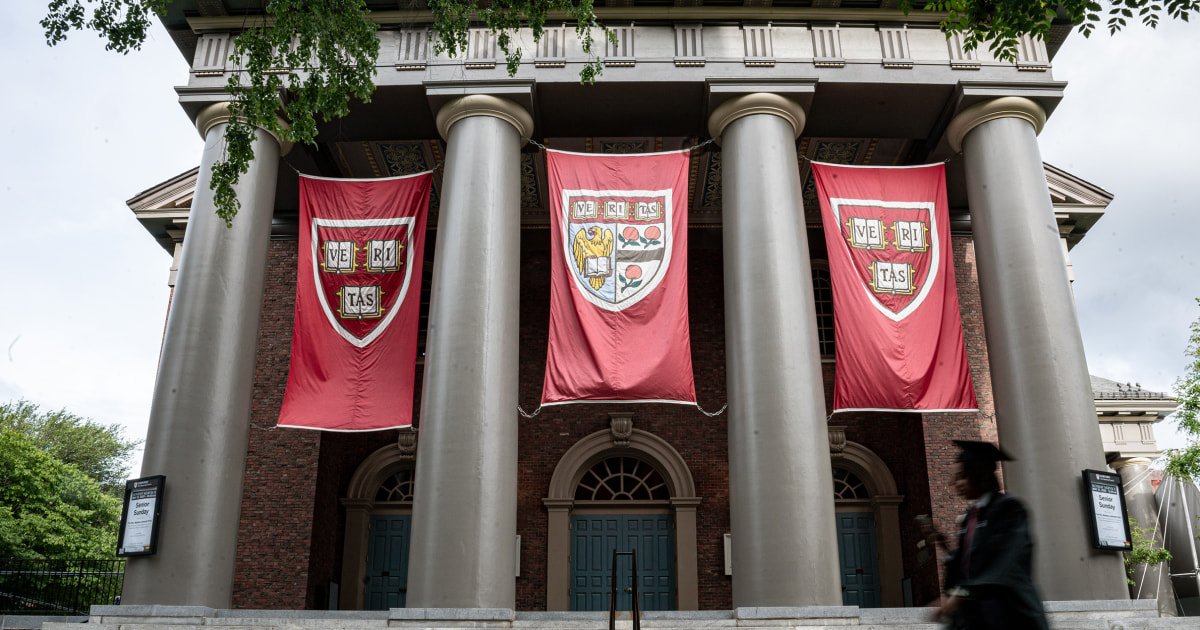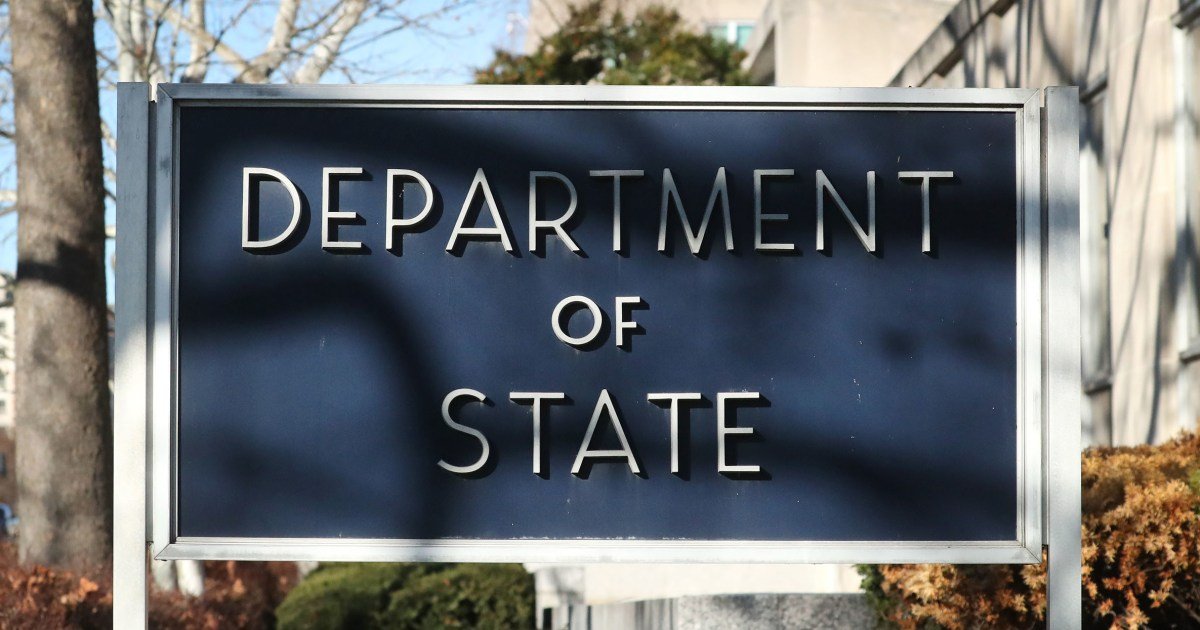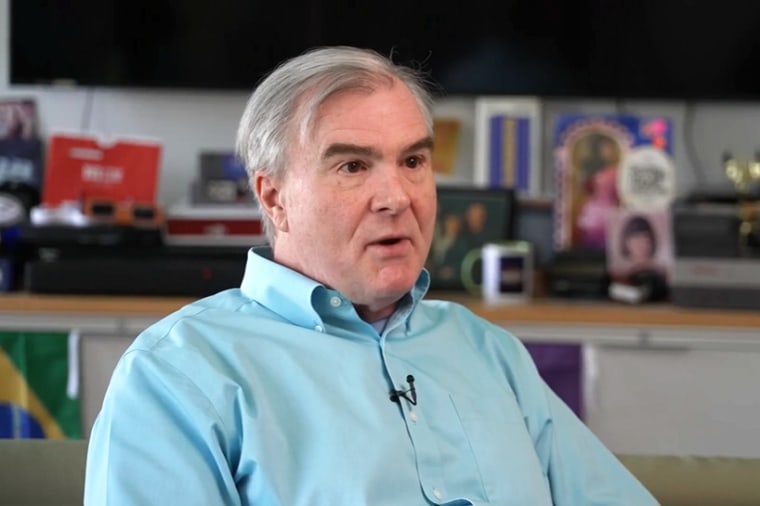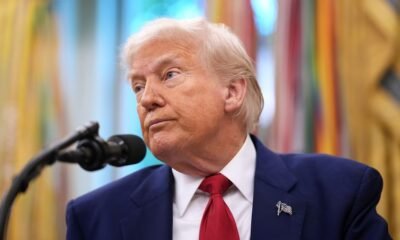Education
Columbia University’s interim president steps down

Columbia University said Friday its interim president, Katrina A. Armstrong, is stepping aside, a week after the university struck a deal with the Trump administration to negotiate its federal funding.
Armstrong assumed the role when President Nemat “Minouche” Shafik resigned in August after a tumultuous spring semester that saw hordes of protests on campus over the war in Gaza.
Claire Shipman, the co-chair of the board of trustees, will assume the role of acting president, effective immediately, the university announced Friday.
Armstrong is returning to the school’s Irving Medical Center, the statement said. The news was first reported by The Wall Street Journal.
“Dr. Armstrong accepted the role of interim president at a time of great uncertainty for the University and worked tirelessly to promote the interests of our community,” said David Greenwald, chair of the board of trustees. “Katrina has always given her heart and soul to Columbia. We appreciate her service and look forward to her continued contributions to the University.”
The school last week agreed to a list of demands by the Trump administration to start negotiations to restore $400 million in federal funding. The funding was pulled earlier this month after the administration accused the New York school of “inaction in the face of persistent harassment of Jewish students.”
This is a developing story. Please check back for updates.
Education
What to know as Harvard professor Francesca Gino has tenure revoked amid data fraud investigation

For the first time in roughly 80 years, Harvard University has revoked the tenure of one of its professors.
Former Harvard Business School professor Francesca Gino, widely known for researching honesty and ethical behavior, had her tenure revoked, a university spokesperson confirmed on Monday.
Gino, 47, and her attorneys did not immediately return requests for comment.
The former professor was placed on administrative leave in 2023 after multiple allegations of falsifying data surfaced. She has long maintained that she did not commit academic fraud.
Harvard declined to provide additional details about her revocation, noting that it does not discuss personnel matters.
The move does not appear to be related to the university’s ongoing standoff with the Trump administration. For weeks, Harvard and the administration have been in legal battles over cuts to the university’s federal funding and ability to enroll foreign students.
However, the revocation represents an unprecedented penalty at Harvard, where no professor has lost their tenure since the 1940s, according to the student university paper The Harvard Crimson, during an exceptional time in the history of the nation’s oldest university.
Who is Professor Francesca Gino?
Gino graduated with an economics degree from a small university in Italy, her home country, a copy of her resume says.
She then earned her PhD in economics from the University of Pisa, before moving to the United States to work on a postdoctoral fellowship at Harvard.
“I was supposed to stay in the U.S. for about 6 to 9 months,” she wrote in a 2023 post on LinkedIn. ”But I truly loved my research and my work, so I never left.”
“I’ll never forget how fortunate I was to have people at Harvard invest in me,” she added.
Gino then worked as a lecturer and researcher at Harvard Business School before becoming a professor at Carnegie Mellon University and later at the University of North Carolina at Chapel Hill.
According to her resume, she returned to Harvard as a professor at the university’s business school in 2010, teaching graduate courses on decision-making and negotiation. Three years later, she published her first book, Sidetracked, on the science behind decision-making.
In 2015, business school news site Poets&Quants named her a “best 40 under 40 professor.“
Gino published a second book in 2018, Rebel Talent, in which she argues that rule breakers and contrarians are the most successful in business and in life.
Throughout her academic career, she has published more than 140 scholarly papers, many of which have been widely featured in the media, such as The New York Times, The Wall Street Journal, and NBC News. Her research centered on behavioral economics, organizational behavior, decision making, negotiation and ethics, according to Harvard’s website.
The Harvard Crimson reported that in 2018 and 2019, Gino was the fifth highest paid employee at the university, receiving more than $1 million in compensation per year.
Some of her most prominent studies have been centered on dishonesty.
Allegations of academic fraud
A team of behavioral professors and researchers affiliated with the blog site Data Coloda began examining several studies co-authored by Gino in 2021, “because we had concerns that they contained fraudulent data,” the site said.
The site alleged that the data in the study Gino co-authored had been fabricated, which the researchers denied.
Later that year, the blog said it shared concerns about more than four of Gino’s other papers with Harvard Business School.
Gino was then placed on unpaid administrative leave in June 2023 after an 18-month review by the university concluded that Gino committed “research misconduct,” according to a lawsuit Gino filed against Harvard and Data Colada that year.
Data Colada’s post about their examination of Gino is also cited in her lawsuit.
According to the suit, the move removed Gino from her teaching, research, and titled professorship responsibilities. Gino sued Harvard and Data Colada for defamation, seeking $25 million in relief.
The suit points to changes Harvard made to its internal policies regarding the integrity of its research in 2021, which appeared to be made in response to the allegations against Gino.
Last year, a federal judge partially dismissed the lawsuit, denying Gino the ability to pursue charges that the university defamed her. However, the judge allowed Gino’s claim that the university breached its contract with her to proceed.
A month later, Gino amended the lawsuit to include gender discrimination claims.
Education
Trump administration stops new student visa interviews

The Trump administration on Tuesday stopped scheduling new interviews for international students seeking visas to study in the United States as the State Department prepares for expanded social media screening of applicants, according to an internal cable seen by NBC News.
The directive was widely circulated to all U.S. diplomatic and consular posts abroad and signed by Secretary of State Marco Rubio. Politico first reported the cable.
The move is the Trump administration’s latest strike on higher education in general and international students in particular as it cuts financial support to Harvard and arrests visa-holding students from abroad.
The State Department said it would issue further guidance to consulates and embassies in the coming days.
“Effective immediately, in preparation for an expansion of required social media screening and vetting, consular sections should not add any additional student or exchange visitor visa appointment capacity,” the cable said.
The memo also warned of “potentially significant implications for consular section operations, processes, and resource allocations” in a clear indication of the delay likely for student visa applications.
“Consular sections will need to take into consideration the workload and resource requirements of each case prior to scheduling them going forward,” the cable said, adding the priority should be on “services for U.S. citizens, immigrant visas, and fraud prevention.”

It was unclear how the prospective students’ social media would be screened as part of the expanded vetting procedures. The public views and speech of international students have come under increased scrutiny during the Trump administration.
The visas of thousands of students at college campuses nationwide have been revoked in recent weeks by the Trump administration, which says it must protect U.S. citizens from immigrants who intend to commit terrorist attacks, threaten national security or espouse hateful ideology.
The future of foreign students at Harvard remains uncertain after the Trump administration banned their enrollment starting in the next school year.
“International students are not a threat.”said Fanta Aw, CEO of the Association of International Educators, adding that they comprise less than 6% of college enrollment in the United States.
“Today’s decision will have a significant impact on international student’s ability to arrive in the U.S. in time for their studies, if they aren’t already discouraged and choose to attend in another country,” Aw said.
Many universities nationwide have warned international students about traveling abroad this summer, fearing many will not be allowed to return.
The crackdown could also financially affect other universities with significant numbers of foreign students.
The State Department had already instructed U.S. diplomats and consular officers to refer certain student and exchange visitor visa applicants to its fraud prevention unit for mandatory social media checks under two executive orders known as Protecting the United States from Foreign Terrorists and Other National Security and Public Safety Threats and Additional Measures to Combat Anti-Semitism.
Education
Syracuse professor shows how bygone pop culture references can bridge generations

SYRACUSE, New York — University professor Bob Thompson has been “teaching television” for about 40 years, tracing his interest in watching the tube back to reruns of Groucho Marx.
“That to me, is a medium and an art form different from any other art form in its own unique ways,” the Syracuse professor says.
On a Tuesday 18 years ago, Thompson hosted an informal get-together to watch unedited TV broadcasts — beginning with the Kennedy assassination news breaks, but later transitioning into lighter content.

In the following Tuesdays, Thompson would introduce episodes of “Howdy Doody” (“ran for president … didn’t win”), “Mr. Ed” (“about a talking horse!”), and “The Flying Nun” (“about a nun who flies!”). Other days have featured viewings of “MASH,” “The Twilight Zone” and the early days of YouTube.
His joy in the class comes from the intergenerational sharing of pop culture. In its current form, “Tuesdays with Bleier,” a reference to Thompson’s dedicated university program on TV, sparks conversation among students and faculty of all ages and backgrounds — including janitorial staff.
“To be able to connect with people who are much older than you about stuff that they watched when they were a kid, and see them light up about it. It’s really beautiful,” said Yasmin Tiana Goring, a Syracuse graduate student. Goring is also Thompson’s teaching assistant.
His students have left his classes with new cultural reference points, helping them at times connect with their parents.
“Out of context, I would text my mom and be like, have you seen ‘Mork & Mindy’ before, or ALF,’” said Sam Turin, a sophomore who brought his parents to the spring semester’s final Tuesday showing.
Thompson recalls that the ‘Howdy Doody’ class inspired one student to talk about it with his grandmother, who was in the latter stages of dementia. She began to sing the song from the show.
Often, the lectures are less about the shows than the context they were originally made and viewed in. For Thompson, the class serves as a “Trojan horse,” one where attendees watch TV for fun, but learn something about pop culture — and the world at large — along the way.
“If you want to understand the country we live in, you have to understand its presidencies, the wars that if it’s fought, its political parties. But you also have to understand its lawn ornaments, its love songs and its sitcoms,” Thompson says.
-

 Africa4 days ago
Africa4 days agoSurvivor of Liverpool car ramming talks of shock and panic
-

 Sports4 days ago
Sports4 days agoThe Knicks are bringing hope and title dreams back to New York after years in the doldrums
-

 Lifestyle5 days ago
Lifestyle5 days agoHow to decorate a patio, balcony or other small outdoor space
-

 Middle East4 days ago
Middle East4 days agoGaza’s aid system isn’t broken. It’s working exactly as designed | Humanitarian Crises
-

 Lifestyle4 days ago
Lifestyle4 days agoFaizan Zaki hopes to go from spelling bee runner-up to champ
-

 Lifestyle4 days ago
Lifestyle4 days agoChildren and careers: Talking to kids about what they want to be when they grow up
-

 Asia4 days ago
Asia4 days agoAnalysis: China thought it had a truce with the US. Then Trump dropped two bombshells
-

 Asia3 days ago
Asia3 days agoShangri-La Dialogue: China snubs Asia’s largest defense forum as tensions with US simmer




